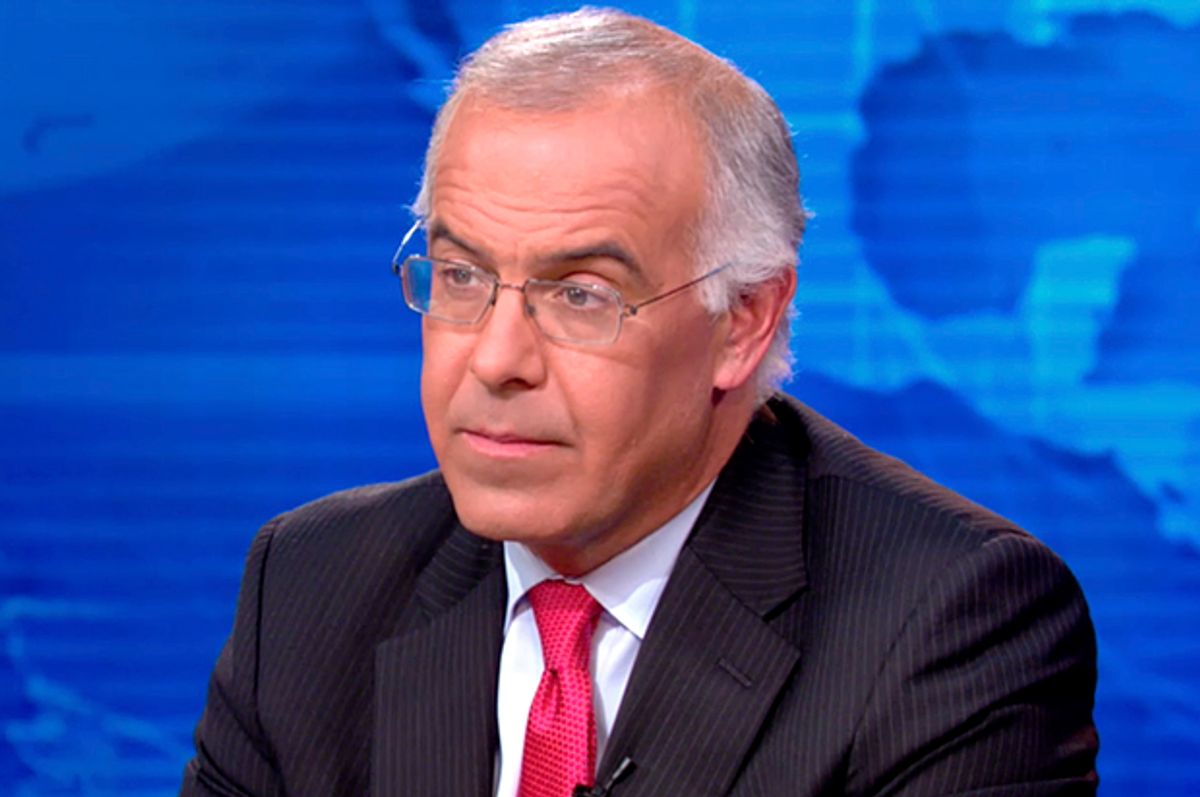The New York Times’ resident moralizer David Brooks is at it again. This time his lecture podium is pointed at Ta-Nehisi Coates, author of the new memoir “Between the World and Me.” Coates’ book, mostly a meditation on race in America, is written as a series of open letters to his teenage son. Let me confess now: I haven’t yet read Coates’ book, though I’ve read much of his writings on race. Few write with the force and clarity that Coates does, and fewer still write about topics as urgent as race and power.
David Brooks isn’t convinced, however. He’s not sure if Coates, a black man from Baltimore chronicling his own life, really understands “the black male experience.” No, Brooks thinks Coates is too angry, too pessimistic about America’s past, too fatalistic about its future. First, it’s worth noting that Coates isn’t talking to the David Brookses of the world. His letters are addressed to his son and to black Americans, not to cloistered elites writing for the country’s most prestigious paper.
In any case, Brooks begins, as he often does, with a kind of faux-olive branch, a perfunctory offering: “The last year has been an education for white people,” he writes. “There has been a depth, power and richness to the African-American conversation about Ferguson, Baltimore, Charleston and the other killings that has been humbling and instructive.” Brooks, of course, promptly commends Coates for his “contribution to that public education.”
But then, right on cue, Brooks begins to miss the point of the person at whom his lecture is aimed. He’s especially miffed at Coates’ dismissal of the American dream as a quaint fantasy built on the backs of enslaved black people. Brooks writes the following:
“You write to your son, ‘Here is what I would like for you to know: In America, it is traditional to destroy the black body — it is heritage.’ The innocent world of the dream is actually built on the broken bodies of those kept down below. If there were no black bodies to oppress, the affluent Dreamers ‘would have to determine how to build their suburbs on something other than human bones, how to angle their jails toward something other than a human stockyard, how to erect a democracy independent of cannibalism.’
Brooks finds this critique “disturbing.” He tells Coates directly (Brooks’ Op-Ed is also written as an open letter -- surely a failed attempt at cleverness): “I think you distort American history.” By distort Brooks means that Coates is too consumed with the ugly parts -- the slavery, the lynching, the plunder, the redlining, the false imprisonment and so on. For Brooks, all this brooding over the past and its impact on the present obscures the obvious (and more pleasant) truth, namely that “America was the antidote to the crushing restrictiveness of European life…the American dream was an uplifting spiritual creed that offered dignity, the chance to rise.” As for that slavery business, sure, it was horrible, but “There’s a Lincoln for every Jefferson Davis and a Harlem Children’s Zone for every K.K.K.”
Brooks’ point, which no one disputes and which is obvious in any event, is that America isn’t all bad; that injustice is inherent in America, but doesn’t come “close to the totality of America.” Fair enough. But Coates’ argument seems to be much more complex than that. At least in his other writings, particularly his essay on reparations, Coates argues that much of what makes America great was born of everything that made it unjust; and that awareness of this truth depends, more often than not, on which side of the line you fall.
Brooks doesn’t really want to hear that, though. He doesn’t want to hear that our distant sins aren’t really distant at all; that the legacy of racism stretches into the present; that Ferguson, Baltimore and Charleston are part of a living history from which we can’t divorce ourselves. Brooks, for instance, says he finds “the causation between the legacy of lynching and some guy’s decision to commit a crime inadequate to the complexity of most individual choices.” He finds it inadequate, in part, because he sees events like Baltimore in a vacuum, ignoring all the antecedent causes that led to it. This is precisely the error people like Coates are exposing. Brooks’ privileged perch affords him the luxury of not understanding how these things are connected; they enter his life only as abstractions, not concrete truths. I imagine it’s far less abstract for a black man from Baltimore, or for his teenage son, or for anyone else encumbered by the past.
How easy it must be for Brooks to focus on tomorrow, to write in earnest that we can “abandon old wrongs and transcend old sins for the sake of better tomorrow.” Those untouched by the pangs of history find it easier to dismiss, I suppose. But Coates is talking about the present as much as he is the past. Brooks, despite making the appropriate gestures, is blind to this part of Coates’ argument. He does not -- and apparently cannot -- see how our past defines our present and constrains our future.
Brooks rarely makes the effort to see the world from the perspective of the other. When he’s writing about poverty or middle-class virtues or racism, his analysis is always removed, abstract and condescending.
Today’s column continues that tradition in fine form.

Shares